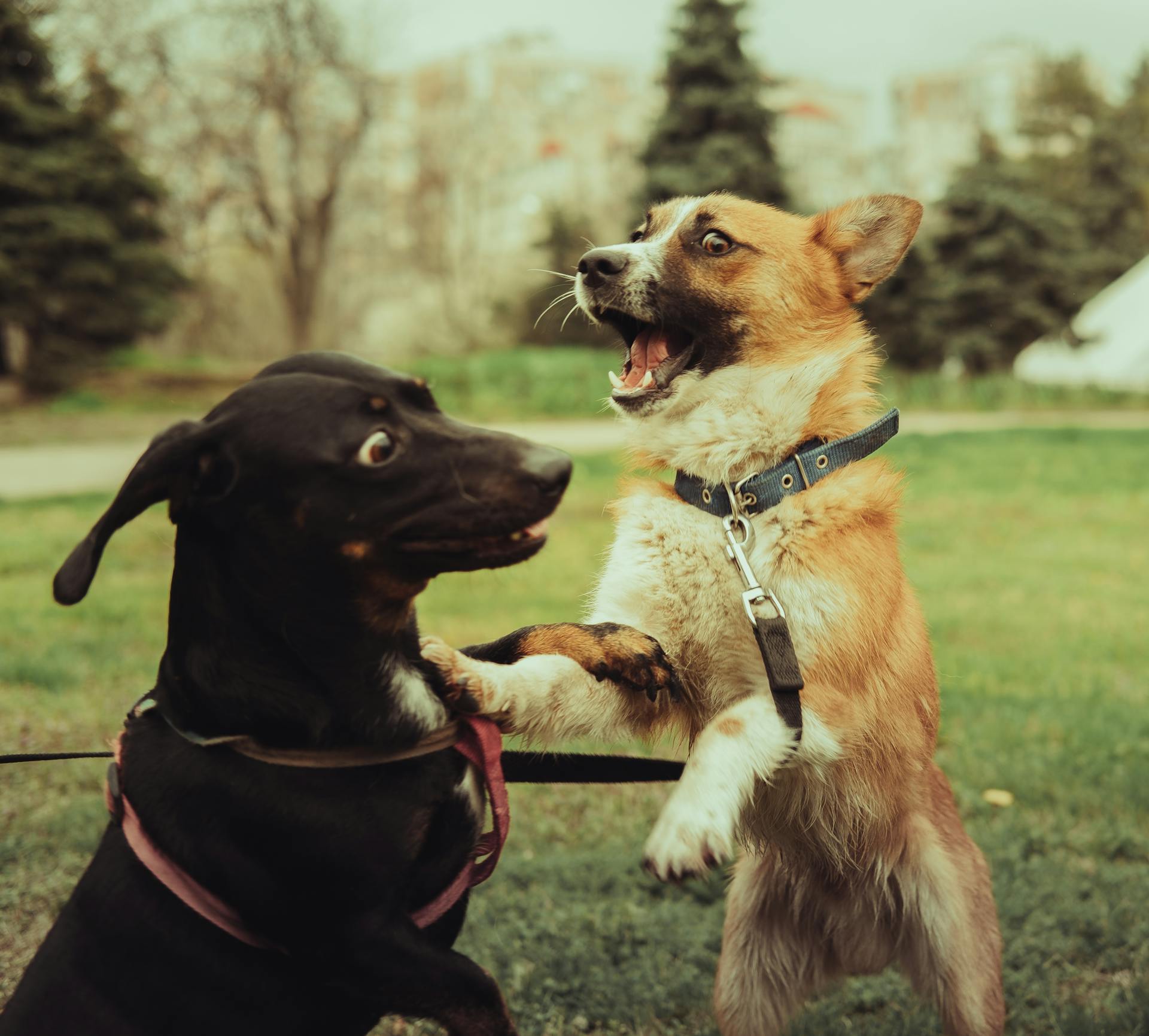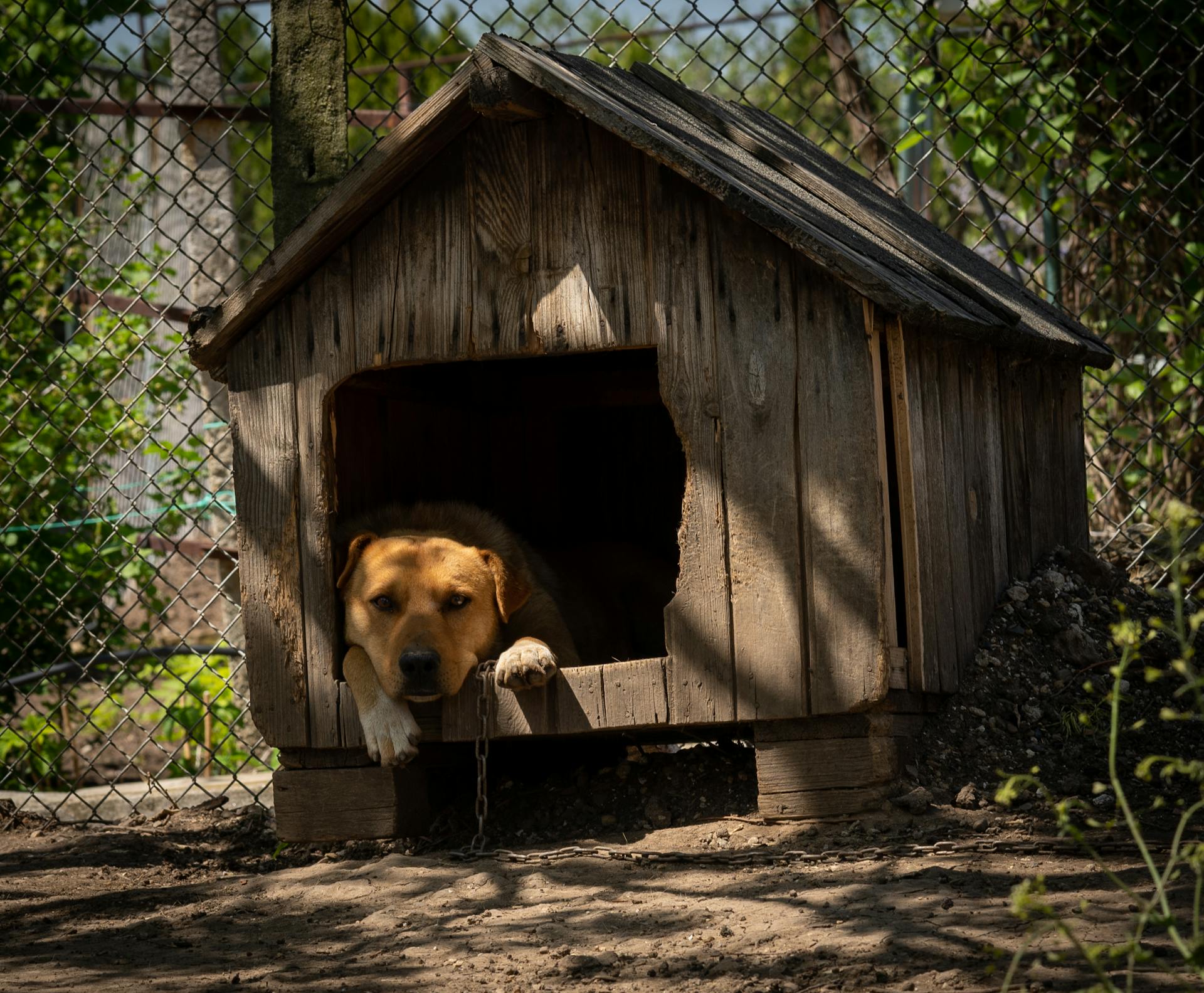
Coming home to a dog that's been boarded can be a bit of a shock. Your furry friend may be dog tired after boarding.
Expect a period of adjustment as your dog readjusts to their familiar surroundings and routine.
It's normal for dogs to feel anxious or stressed after boarding due to the change in environment and separation from their owners.
Physical Exhaustion
Dogs get tired after physical exertion, just like humans do. The level of activity at daycare often surpasses what they would normally do at home.
They may engage in continuous play, running back and forth with their mates, which is much more than the occasional walk they might get on a regular day.
This intense physical activity helps burn off energy, which is great for keeping your dog healthy.
It's not uncommon for dogs to be quite tired at the end of the day, especially after a fun-filled day at daycare.
If this caught your attention, see: Dog Boarding vs Daycare
Identifying Post-Boarding Behavior
After bringing your dog home from boarding, you may notice some normal behaviors, such as changes in appetite or energy levels. These changes are usually temporary and can be a result of the dog adjusting to being back home.
Some normal behaviors to expect include whining or pacing around the house, which can be a sign that your dog is still getting used to being home.
Dogs are rarely traumatized from boarding, so it's unlikely that your dog will exhibit severe behavioral issues.
However, if your dog is exhibiting abnormal behaviors, such as depression, fear, or accidents, it's essential to rule out any potential medical causes by consulting with a vet.
Changes in behavior, such as shaking or acting scared after returning home, can be a sign of mental trauma and should be addressed promptly.
A different take: Dog Boarding in Home
Rest and Recovery
After your dog returns home from boarding, it's essential to give them some time to rest and recover. This can take a few days, so be patient and let them ease back into their routine.
Allowing your dog to get used to being home again is crucial, as dramatic changes in behavior may be a sign of stress or anxiety. If you notice any unusual behavior, it's best to book an appointment with your veterinarian for advice.
A good balance of activity and rest is vital for your dog's health and well-being. Without adequate downtime, dogs can become chronically stressed, which may impact their immune system and overall health.
Rest helps dogs recover from physical activity, just like athletes need to rest to repair muscles. It's also essential for mental decompression, allowing them to process the day's experiences and reduce stress.
To help your dog recover more effectively after boarding, ensure they have a quiet, comfortable space to rest, access to fresh water, and maybe a gentle massage to soothe sore muscles.
Here's a checklist to help you provide the best rest and recovery for your dog:
- Provide a quiet space for your dog to rest
- Ensure access to fresh water
- Consider a gentle massage to soothe sore muscles
A tired dog after boarding is typically a sign of a day well-spent. They've played, learned, socialized, and explored, using up both physical and mental energy.
Understanding the Boarding Experience
Your dog can be mentally tired after boarding, just like humans. This mental fatigue can cause physical tiredness, so it's no wonder they might seem a bit sluggish.
Dogs in boarding facilities often have access to interactive puzzle toys to exercise their brains, which can help alleviate boredom and mental exhaustion.
After bringing your dog home, you might notice some normal behaviors, such as excessive sleeping, which can last for one or two days due to the new experiences and smells they encountered while boarding.
A Typical Day in In-Home Care
A typical day in in-home care can be a great option for dogs who prefer the comfort of their own environment. Your pet sitter will likely have a routine in place to ensure your dog gets the attention and exercise they need.
Dogs in in-home care are often exercised throughout the day, which can help them relax at night. In fact, a good pet sitter will make sure your dog feels at ease in their home, especially at bedtime. This can be especially important for anxious dogs who may have trouble sleeping in a new environment.
Exercise is key to a dog's relaxation and sleep. A typical day in in-home care may include dog walking appointments, which can be a great way to get your dog some physical and mental stimulation. However, not all pet sitters may take your dog on walks with other dogs, so it's a good idea to ask about their exercise plans.
Here's a rough idea of what a typical day in in-home care might look like:
Keep in mind that every pet sitter is different, and their routine may vary. It's always a good idea to ask your pet sitter about their plans for your dog's care, so you can feel confident that they're getting the attention and exercise they need.
What Is Included?
When choosing a dog boarding service, it's essential to understand what's included in the overnight pricing. This can vary greatly from one pet sitter to another.
You might assume that dog boarding includes walks, playtime, feedings, and snuggles, but this isn't always the case. Ask ahead of time what type of exercise your dog will be getting during the day.
If the pet sitter tells you they will walk your dog, ask them how many times they will walk your dog and how far they will walk each time. This will help you understand what your dog is getting in terms of physical activity.
Intriguing read: Boarding Dog for First Time
When to Seek Veterinary Care
If your dog is still sleeping a lot after 24 hours, it's best to contact your vet right away. This is especially true if you notice other symptoms like not eating, not drinking, excessive whining or barking, pacing, shaking, panting, or hiding.
Some of these symptoms, like excessive whining or barking, can also be signs of stress. However, if they persist for more than a day, it's better to err on the side of caution and consult with your vet.
If your dog was happy and excited seeing you and then went straight to bed once you get home, it's likely just exhaustion. But if your dog greets you with no energy, sickness is a possibility.
Here are some symptoms to watch out for:
- Not eating
- Not drinking
- Excessive whining or barking
- Pacing
- Shaking
- Panting
- Hiding
Frequently Asked Questions
Why is my dog sleeping so much after vacation?
Your dog is probably sleeping a lot after vacation because they had a busy and active time, and now they're just catching up on rest. However, if they were left alone for too long, they might have developed unhealthy habits due to boredom.
Sources
- https://www.muddypaws.biz/personalized-pet-sitting/what-does-in-home-dog-boarding-entail/
- https://www.hillcrestanimals.com/site/blog-memphis-vet/2022/08/30/dog-boarding
- http://www.wagnworld.com/what-causes-dogs-upset-stomach-after-boarding
- https://www.silvermaplepetcenter.com/dog-tired-after-daycare/
- https://topdogtips.com/why-is-my-dog-tired-after-boarding/
Featured Images: pexels.com


